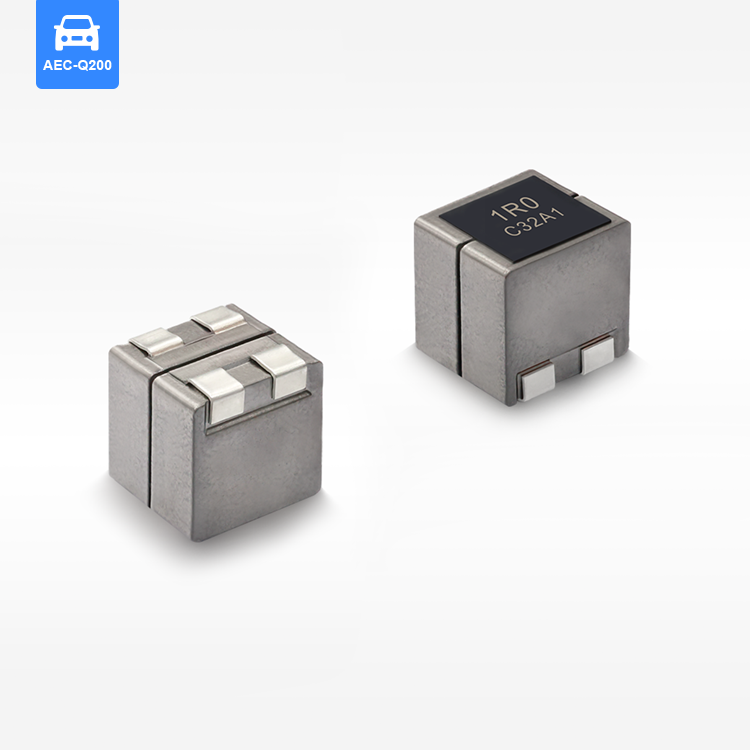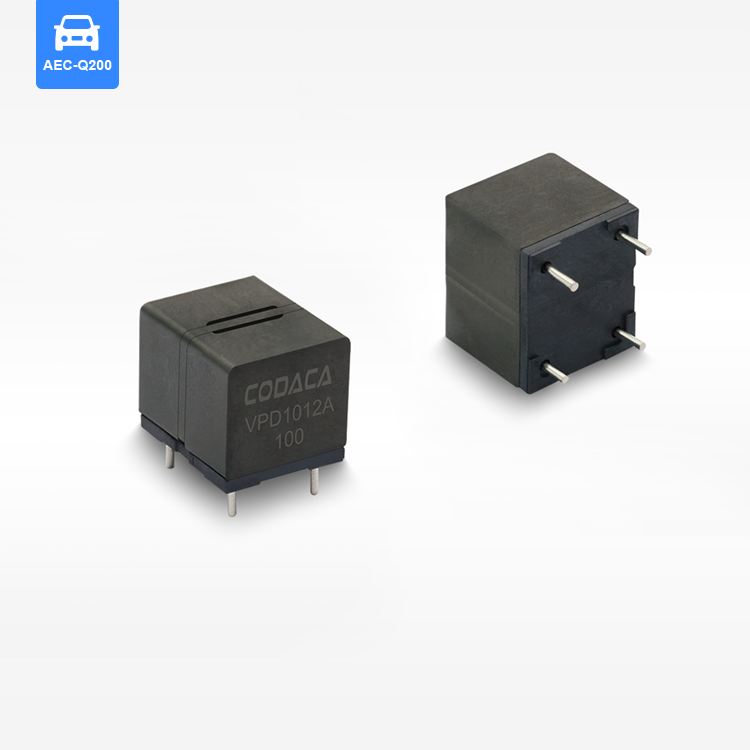Growing Demand for Digital Amplifiers and Inductor Integration
Rising Popularity of High-Fidelity Audio Systems
High-fidelity audio systems are enjoying a surge in popularity among both audiophiles and general consumers, driving demand for advanced digital amplifiers that deliver superior sound quality. According to recent market data, there's been a notable increase in sales of high-fidelity audio equipment, indicating a growing consumer interest in achieving the best auditory experience possible. The integration of inductors is pivotal in enhancing sound fidelity; they enable efficient signal processing and help reduce distortions, thereby guaranteeing clearer and more precise sound output. Furthermore, emerging audio technology trends highlight consumer preferences for high-resolution audio formats, influencing the design and performance standards targeted by digital amplifier manufacturers. These technological advancements are setting new benchmarks, pushing companies to innovate and improve their product offerings continuously.
Impact of Automotive and Consumer Electronics Growth
The automotive industry is undergoing a significant transition towards electric vehicles (EVs), which heavily rely on digital amplifiers integrated with inductors for cutting-edge audio systems. This shift underscores the pivotal role that advanced audio technologies play in the modern automotive landscape. At the same time, the growth in consumer electronics, especially within smart devices and home automation sectors, is propelling the demand for more sophisticated audio solutions. These solutions often leverage the latest inductor technology to meet escalating consumer expectations. Recent market reports predict a substantial compound annual growth rate (CAGR) in automotive audio segments, further signifying the potential for digital amplifier applications to expand and evolve. This growth highlights the intersection of technology and consumer desire, driving innovation in these industries.

Role of Inductors in Digital Amplifier Circuit Design
Power Management and Noise Filtering
Inductors play a critical role in power management within digital amplifiers by stabilizing voltage and ensuring a consistent power supply to amplifier circuits. This stability is necessary to prevent fluctuations that could affect audio output. Additionally, inductors are pivotal for noise filtering. Their unique properties allow them to reduce electromagnetic interference (EMI), which can otherwise disrupt audio signals. This reduction in noise contributes significantly to the performance of digital amplifiers, ensuring clear and pristine sound quality. Moreover, several studies underscore the importance of selecting the appropriate inductor type, as this choice can dramatically enhance noise filtering capabilities and, consequently, the output audio quality.
Signal Integrity and Efficiency Optimization
Maintaining signal integrity is crucial in circuit design, and inductors are instrumental in minimizing signal degradation during transmission. Proper signal transmission is essential to preserve audio fidelity and prevent loss of sound quality in digital amplifiers. Furthermore, efficiency optimization frequently involves selecting inductors with low DC resistance (DCR). This choice is pivotal, as it improves the overall efficacy of the circuit, ensuring that power is used effectively and minimizing energy waste. Research consistently highlights the relationship between inductor selection and signal fidelity, demonstrating that high-performing inductors can lead to superior audio output. Hence, choosing the right inductor is not merely a technical requirement but a strategic decision in optimizing digital amplifier performance.
Emerging Trends: Miniaturization, Efficiency, and EMI Reduction
Advancements in Material Science for Compact Designs
Recent advancements in material science have paved the way for the creation of smaller and lighter inductors, while still maintaining high performance. A critical development in this area is the use of ferrite materials. These materials are known to effectively reduce eddy currents and enhance overall inductance, making them particularly well-suited for compact digital amplifiers. Such innovations align with the miniaturization trend that is sweeping through the consumer electronics industry, allowing devices to be more efficient and functional without a significant increase in size. This technological progression underscores the importance of strategic material selection in engineering compact electrical components.

High-Temperature Resistance and Energy-Saving Innovations
In the world of inductors, high-temperature resistance is becoming increasingly crucial, especially for applications in automotive audio systems where reliability under extreme conditions is a necessity. Innovations aimed at energy conservation in inductor designs are leading to enhanced efficiency profiles, reducing operational costs for both manufacturers and end-users. According to industry reports, these energy-efficient designs are growing in importance, driven by regulatory demands to curtail energy consumption in electronic devices. This focus on energy-saving technology demonstrates the industry's commitment to sustainability and operational cost reduction.
Regulatory Standards Driving EMI Mitigation
Compliance with regulatory standards for electromagnetic interference (EMI) mitigation is paramount in the design of electronic devices, and inductors are central to achieving this compliance. As regulations demand more stringent EMI controls, stakeholders in the industry must stay abreast of these regulatory changes to ensure their products are in line with requirements. The market's response has been to invest in advancements in insulating and shielding technologies. These investments aim to prevent interference, thereby securing the operational integrity of electronic devices and supporting the industry's continued innovation within regulatory boundaries.
Application Needs Across Industries
Automotive Audio Systems: Durability and Performance
Automotive audio systems require inductors capable of withstanding harsh conditions while delivering high performance due to the demanding environment of vehicles. The need for durable inductors in automotive applications is evidenced by durability metrics, showing that inductors designed for these settings have significantly longer lifespans compared to standard inductors. As sound quality becomes increasingly critical in automotive setups, selecting the right inductors is pivotal in circuit design. These inductors must ensure stable and high-quality audio output, making them a vital component in the architecture of automotive audio systems. By focusing on durability and sound performance, manufacturers can meet the growing expectations for audio experiences in vehicles.

Challenges and Future Outlook in the Inductor Market
Balancing Cost and Performance in High-Volume Production
In the indcutor market, balancing cost and performance is a persistent challenge, especially in high-volume production. This challenge is primarily due to the constant fluctuation in raw material prices, which impacts the economic feasibility of manufacturing high-performance inductors. To maintain competitiveness, manufacturers must continuously innovate and refine their processes. Industry experts suggest that implementing efficient manufacturing processes can significantly improve cost control without compromising on the quality of inductors produced. By focusing on optimization, manufacturers can tackle the challenges posed by fluctuating costs and deliver products that meet high-performance benchmarks.
Sustainability and Next-Generation Material Adoption
Sustainability is rapidly becoming a crucial aspect of the inductor market, with the adoption of next-generation materials gaining prominence. This shift is not only driven by regulatory pressures but also by a growing consumer preference for environmentally friendly products. As research into sustainable materials advances, there is a clear impact on design choices and production strategies. While this transition presents a significant challenge due to existing industry practices, it also offers an opportunity for innovation. Embracing sustainable practices enables manufacturers to develop more efficient and eco-friendly inductors, positioning themselves advantageously in a market that increasingly values environmental impact.

FAQ
What is the role of inductors in digital amplifiers?
Inductors stabilize voltage and filter noise by reducing electromagnetic interference (EMI), crucial for clear and high-quality audio output in digital amplifiers.
Why are high-fidelity audio systems becoming popular?
High-fidelity audio systems are gaining popularity due to the rising consumer interest in superior sound quality and advancements in digital amplifier technology.
How do inductors contribute to energy efficiency in electronic devices?
Inductors with low DC resistance optimize efficiency by ensuring effective power use and minimizing energy waste, thus contributing to overall energy efficiency in electronic devices.
What challenges does the inductor market currently face?
The inductor market faces challenges such as balancing cost and performance amid fluctuating raw material prices and sustainability concerns.

